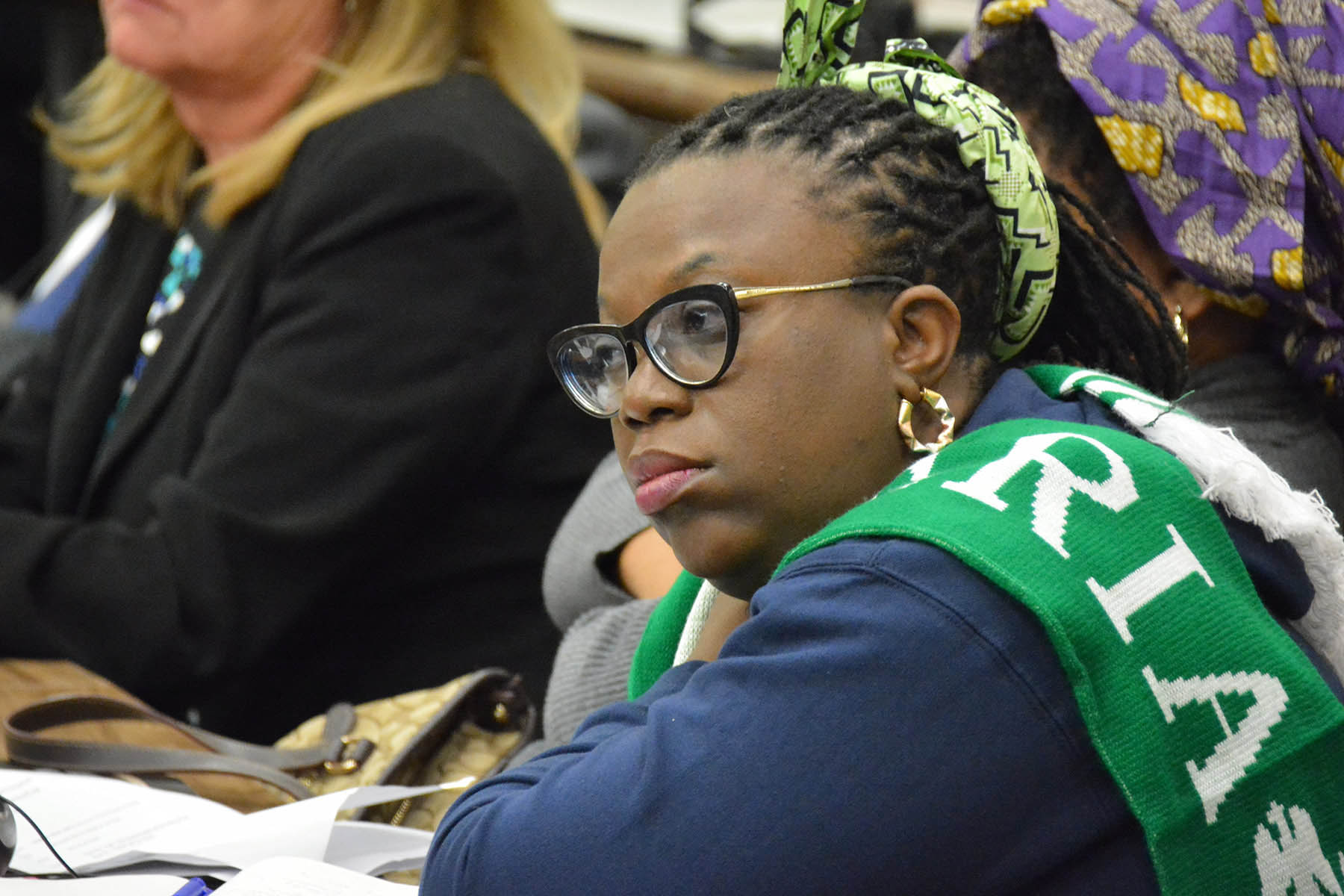Symposium 2017: NIgeria

by Shaun Belliston, BYU Law Student and Symposium Volunteer
Nigeria was the focus of a breakout session during the 24th Annual International Law and Religion symposium, held at the Brigham Young University School of Law in Provo, Utah. The session was held Monday afternoon on October 2, 2017, and was translated into several languages. The session was moderated by Bryan C. Jackson, Fellow for the International Center for Law and Religion Studies. During the session, both speakers discussed the multi-religious nature of Nigeria and how it impacts religious freedom in the country.
The first speaker of the session was Professor Chijioke Ohuruogu, the current Dean of the Faculty of Law at Baze University in Abuja, the capital of Nigeria. Professor Ohuruogu teaches international law, human rights law, constitutional law, international human rights law, and serves on the Board of Access to Justice, a human rights NGO in Nigeria. Professor Ohuruogu began his remarks by giving a brief history and background of Nigeria and emphasizing that Nigerians are almost equally divided into Christians and Muslims, the two most professed religions. Professor Ohuruogu then discussed the constitution of Nigeria, specifically highlighting its supremacy clause and the provisions which establish freedom of religion and prohibit state religions. At the center of Professor Ohuruogu’s message was a paradox he perceived between Nigerian constitutional law and state practice.
The second speaker of the session was Dr. Abiola Akiyode-Afolabi, a lecturer in the Department of Public Law, University of Lagos, founding Director of Women Advocates Research and Documentation Center (WARDC), and currently is the acting Secretary, West African Law and Religion Society. Dr. Akiyode-Afolabi’s message, entitled “Freedom of Religion, Conflicting Judgments and Hijab Cases in Nigeria,” centered on the judicial decisions and conflicting judgments that followed the contestations surrounding the wearing of the hijab in public schools in Nigeria. Dr. Akiyode-Afolabi then discussed how the recent conflicting judgments from the High Courts in the Lagos and Osun States may affect stare decisis in Nigeria’s judicial system. At the close of her remarks, Dr. Akiyode-Afolabi urged Nigerian courts to find a way to keep judgments unified so as to maintain religious harmony throughout the nation.
At the close of the session, Mr. Jackson thanked the speakers for their dedication and scholarship and for their time in addressing the symposium.